WMG News
WMG and Jaguar Land Rover in electrifying £5.7 million Prosperity Partnership
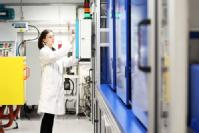 WMG at the University of Warwick has been awarded £5.7 million by the Engineering and Physical Sciences Research Council (EPSRC) to form a Prosperity Partnership with Jaguar Land Rover that could literally be described as ”electrifying”.
WMG at the University of Warwick has been awarded £5.7 million by the Engineering and Physical Sciences Research Council (EPSRC) to form a Prosperity Partnership with Jaguar Land Rover that could literally be described as ”electrifying”.
WMG’s Professor Barbara Shollock said:
“This Prosperity Partnership will tackle the emerging challenges for vehicle electrification through a unique collaboration to grow scientific understanding. This integrated approach brings the potential for the UK to lead, both industrially and scientifically, in an area of high growth and relevance in the UK's industrial strategy.”
“Our shared vision is to create new scientific insights to underpin the Automotive Council’s electrification agenda, from batteries and power electronics to electric motors and electric drive units.”
Electrification is a strategic target for the UK and a major element in the UK Industrial Strategy and an opportunity to grow a new globally-competitive industry. The UK strategy for ultra-low emission vehicles states the ‘vision is that by 2050 almost every car and van in the UK will be an ultra-low emission vehicle, with the UK at the forefront of their design, development and manufacture, making us one of the most attractive locations for ultra-low emission vehicle–related inward investment in the world’. To achieve this requires a step-change in knowledge, understanding and technology and Prosperity Partnership bringing together the WMG and Jaguar Land Rover will help achieve that.
Clean energy stored in electric vehicles to power buildings
Stored energy from electric vehicles (EVs) can be used to power large buildings – creating new possibilities for the future of smart, renewable energy - thanks to ground-breaking battery research from WMG at the University of Warwick.
 Dr Kotub Uddin, with colleagues from WMG’s Energy and Electrical Systems group and Jaguar Land Rover, has demonstrated that vehicle-to-grid (V2G) technology can be intelligently utilised to take enough energy from idle EV batteries to be pumped into the grid and power buildings – without damaging the batteries.
Dr Kotub Uddin, with colleagues from WMG’s Energy and Electrical Systems group and Jaguar Land Rover, has demonstrated that vehicle-to-grid (V2G) technology can be intelligently utilised to take enough energy from idle EV batteries to be pumped into the grid and power buildings – without damaging the batteries.
This new research into the potentials of V2G show that it could actually improve vehicle battery life by around ten percent over a year.
PhD researcher sought to help test huge car electrical system that will stretch from Newcastle to London
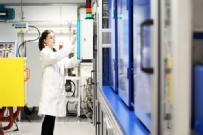 Car battery researchers at WMG at the University of Warwick have just bought specialist “Hardware-in-the-Loop” high power computing equipment. This will connect real time high tech battery research testing at the University of Warwick with simultaneous tests on real advanced hybrid electric vehicle components at five other universities. Now WMG are looking to recruit a PhD research student to run the battery test while connecting it to an England wide simultaneous test of a vehicle’s electrical systems.
Car battery researchers at WMG at the University of Warwick have just bought specialist “Hardware-in-the-Loop” high power computing equipment. This will connect real time high tech battery research testing at the University of Warwick with simultaneous tests on real advanced hybrid electric vehicle components at five other universities. Now WMG are looking to recruit a PhD research student to run the battery test while connecting it to an England wide simultaneous test of a vehicle’s electrical systems.
Secretary of State views work to complete £150 million Centre that will help deliver UK Industrial Strategy
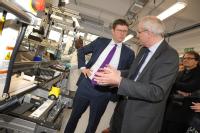 The Rt Hon Greg Clark MP, the Secretary of State for Business, Energy and Industrial Strategy, visited WMG, at the University of Warwick, on Friday 20th January 2017, taking up an invitation to see for himself the work underway to complete the new £150 million National Automotive Innovation Centre on the University Campus. He also saw the work expanding WMG’s Energy Innovation Centre which provides a one-stop-shop for the development of new battery chemistries to create advanced batteries for the automotive sector.
The Rt Hon Greg Clark MP, the Secretary of State for Business, Energy and Industrial Strategy, visited WMG, at the University of Warwick, on Friday 20th January 2017, taking up an invitation to see for himself the work underway to complete the new £150 million National Automotive Innovation Centre on the University Campus. He also saw the work expanding WMG’s Energy Innovation Centre which provides a one-stop-shop for the development of new battery chemistries to create advanced batteries for the automotive sector.
The National Automotive Innovation Centre is a unique automotive research centre, and the largest facility of its kind in Europe. It will provide high technology automotive manufacturing research that will be of significant benefit in the delivery of the key manufacturing component of the UK’s Industrial Strategy.
£2.2m award by the Department of Transport for ZAPINAMO and WMG to trial new technology for charging electric commercial vehicles
Transport Minister John Hayes has announced that ZAPINAMO has been awarded £2.2m by the Department of Transport, the Office for Low Emission Vehicles and Innovate UK under the Low Emissions Freight Trial to work with WMG and others to trial technology for ultra high speed rapid and movable charging technology for commercial vehicles.
ZAPINAMO's technology uses on/off grid and renewable sources for EV charging and is capable of delivering over 400kW to charge a vehicle in minutes. This represents a step change in how we charge EVs as it is the first charging technology which can meet the demands of electric commercial vehicles with long and demanding duty cycles.
Construction greener and more efficient with intelligent software
Construction vehicles could become more efficient and environmentally-friendly, thanks to new technology developed by WMG at the University of Warwick.
Through a new Innovate UK research programme, WMG in collaboration with partners JCB and Pektron PLC are working to optimise the fuel economy of the next generation of off-highway vehicles.
 Dr James Marco from WMG is leading the University’s contribution to the project that aims to introduce new intelligent power systems for improved engine operation.
Dr James Marco from WMG is leading the University’s contribution to the project that aims to introduce new intelligent power systems for improved engine operation.
This could lead to significant fuel savings and fewer carbon emissions for the industry.
Dr Marco’s team is analysing JCB’s current fleet to better understand the opportunities for emissions reduction and intelligent control.
Today’s construction industry is more environmentally-conscious than ever, and the amount of CO2 emissions released by vehicles is a significant factor in deciding which ones to use during an assignment.
WMG part of £7 million UK CITE project to create one of the world’s most advanced environments for connected and autonomous driving
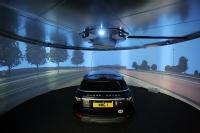 WMG at the University of Warwick has been tasked with delivering two significant parts of a project to create one of the world’s most advanced environments for connected and autonomous driving.
WMG at the University of Warwick has been tasked with delivering two significant parts of a project to create one of the world’s most advanced environments for connected and autonomous driving.
Announced on June 1st, the globally unique UK Connected Intelligent Transport Environment (UK CITE) project is worth a total of £7.1m and has won funding from the government’s £100 million Intelligent Mobility Fund. The fund, which has been established to accelerate research and development in connected and autonomous vehicle technologies, is administered by the Centre for Connected and Autonomous Vehicles (CCAV) and delivered by the UK’s innovation agency, Innovate UK.
New Associate Professor joins Connected and Autonomous Vehicles research
 WMG
WMG , University of Warwick is pleased to announce the appointment of Dr Matthew Higgins
, University of Warwick is pleased to announce the appointment of Dr Matthew Higgins as an Associate Professor, in the area of Connected and Autonomous Vehicles
as an Associate Professor, in the area of Connected and Autonomous Vehicles research.
research.
Dr Higgins has spent the last seven years, working in association with some of the UK’s leading defence and telecommunications companies.
He progressed through a number of roles including Research Assistant, Research Fellow, and Senior Teaching Fellow, before being promoted in 2012 to the position of Assistant Professor. His research focused primarily on Optical, Nano, and Molecular Communications. Whilst in this position, Dr Higgins set up the Vehicular Communications Research Laboratory, which aimed to enhance the use of communications systems within the vehicular space.
WMG student Siddartha Khastgir to take part in the IMechE Global Engineering Debate
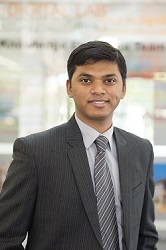 WMG research student Siddartha Khastgir CEng MIMechE will be representing us at the prestigious IMechE Global Engineering Debate London 2016, on Wednesday 20 April at IMechE HQ, 1 Birdcage Walk.
WMG research student Siddartha Khastgir CEng MIMechE will be representing us at the prestigious IMechE Global Engineering Debate London 2016, on Wednesday 20 April at IMechE HQ, 1 Birdcage Walk.
The event has been organised by the Institution of Mechanical Engineers (IMechE) Greater London Young Member Panel.
This interactive event will feature four high profile young engineering speakers who will debate and try to answer the question: “Back to the future: What is the future of local transport?” The debate will cover automotive, public transport (rail and buses) and autonomous vehicles.
Siddartha will be debating for Autonomous Vehicles being the future of local transport while focussing on user-benefit, cost, environmental and economic impact.
In order to gauge whether the debate has an influence on audience opinions prior to starting, they will be asked to vote on which form of transport should be invested in to meet future demand. The vote will be repeated after the debate, and results compared to determine whether or not the opinions of the audience have changed.
For more information visit the IMechE Global Engineering Debate site.
site.
WMG key partner in a £5.4 million project to develop UK battery supply chain for high performance, low carbon vehicles
 WMG, University of Warwick, was recognised as the Advanced Propulsion Centre UK spoke for Electrical Energy storage in 2015, and it has been announced that WMG is to be a key partner in £5.4 million project to develop the next generation of battery packs for high performance, low carbon vehicles.
WMG, University of Warwick, was recognised as the Advanced Propulsion Centre UK spoke for Electrical Energy storage in 2015, and it has been announced that WMG is to be a key partner in £5.4 million project to develop the next generation of battery packs for high performance, low carbon vehicles.
The UK Automotive Battery Supply Chain project aims to exploit the world leading UK innovations in the area of battery technology. Currently most of the technology within the battery systems used by the UK automotive industry is sourced from overseas suppliers, so this project aims to capitalise on the UKs strong battery technology research base and bring production back to the UK to serve demand from a changing automotive industry as they drive to deliver innovative ways to reduce carbon emissions and improve performance.
